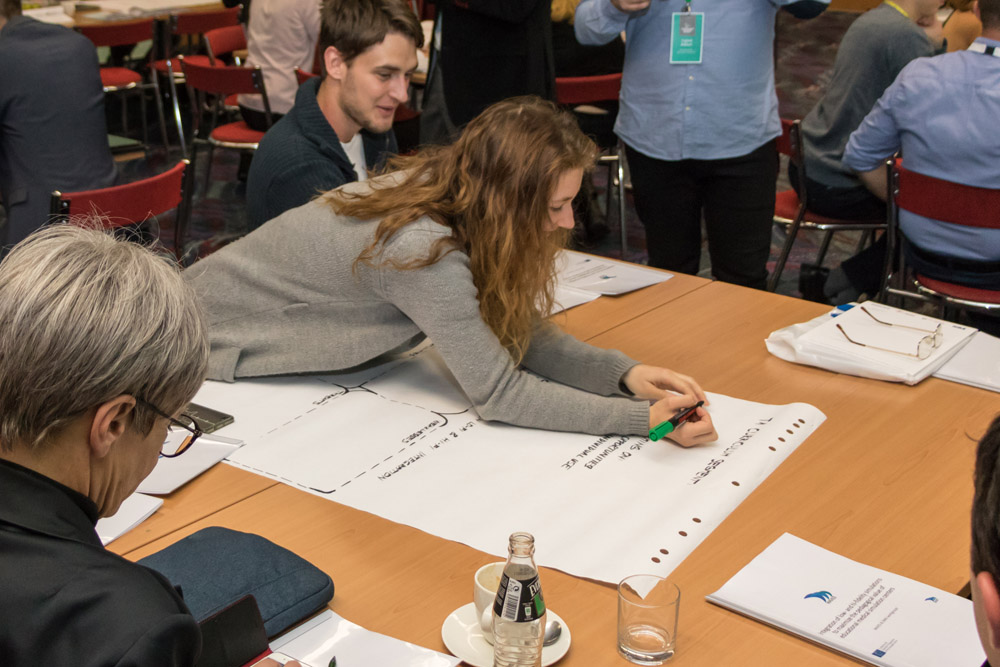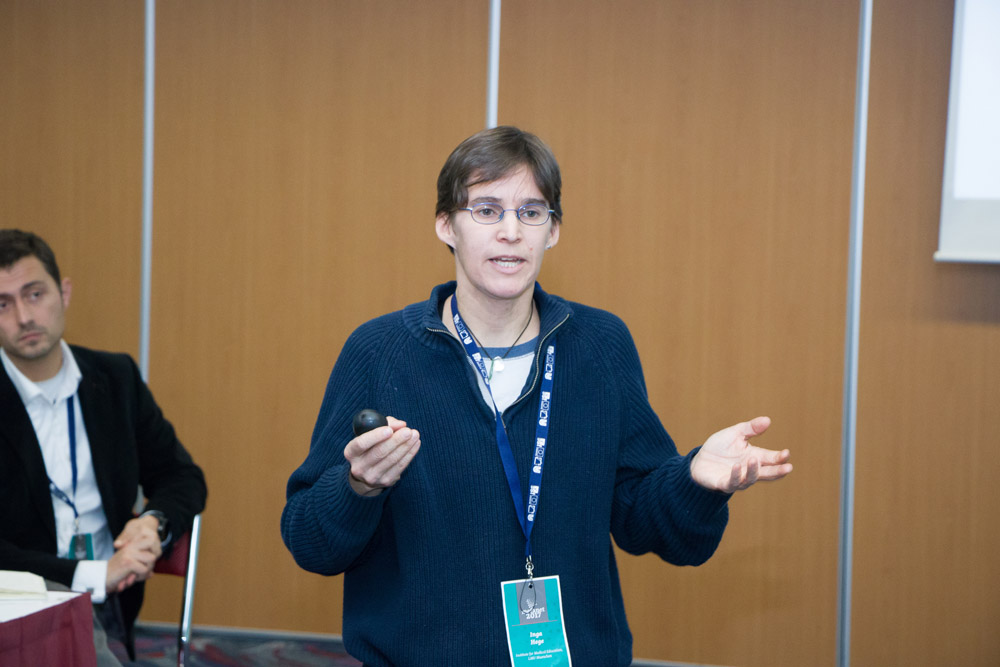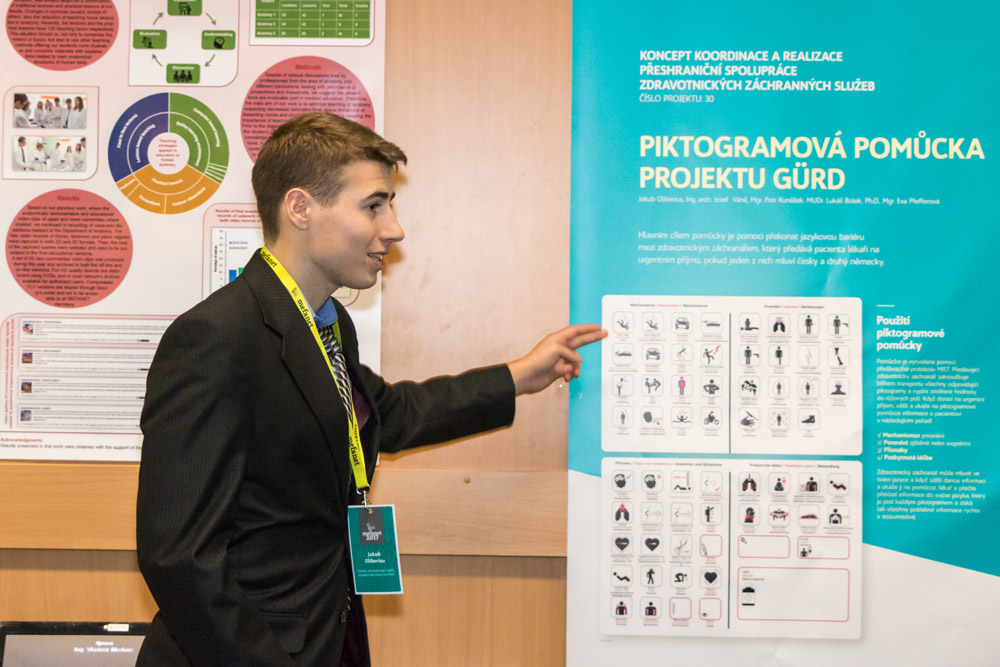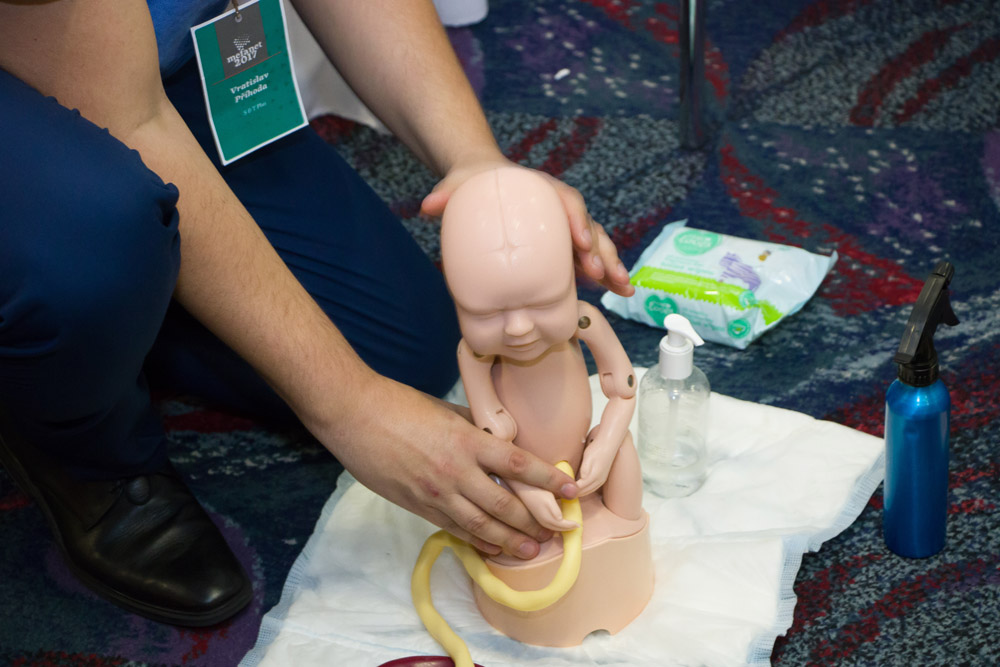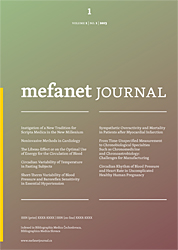
MEFANET Journal 2019; 6(1): 23-24
EDITORIAL MATERIAL
MEFANET 2017 conference: simulation without penalty
Martin Komenda*, Jakub Gregor, Lenka Šnajdrová
Institute of Biostatistics and Analyses, Faculty of Medicine, Masaryk University, Czech Republic
* Corresponding author: komenda@iba.muni.cz
Abstract
Article history:
Received 1 September 2018
Available online 26 October 2018
Download PDF
Supplementary material
Football and medical education have at least one thing in common: simulation either already is or slowly becomes inseparable from it. This phenomenon might be tolerated – to put it mildly – in football; by contrast, it is highly desirable and actively promoted in medical education. Not surprisingly then, “simulation” was one of the most frequent buzzwords at the 11th year of the MEFANET conference.
Keywords
MEFANET; medical informatics; simulation; virtual patient; innovative technology; teaching
Nevertheless, the annual meeting of representatives from medical faculties and healthcare faculties from across the Czech Republic and Slovakia, whose impact extended beyond these two countries and which was held in November 2017 in the pleasant premises of the Hotel Continental in Brno, was very non-simulated and real. One of the two introductory workshops, entitled “Integration of low- and hi-fidelity simulations to maximise the pedagogical value of educational medical simulation centres”, was entirely dedicated to various types of simulation technology and innovative teaching approaches in the education of medical and healthcare disciplines. The workshop was led by representatives of two large projects: SIMU+ (Masaryk University Strategic Investments in Education) and WAVES (Widening Access to Virtual Educational Scenarios). The latter is a European project which is solved within an Erasmus+ Knowledge Alliance and aims to interconnect academic educational institutions with the commercial sector. Prof Terry Poulton, one of the workshop guarantors, also gave a lecture intended for employees and students of the Faculty of Medicine of the Masaryk University, which took place in the University Campus at Bohunice, not far away from the conference venue.
Invited speakers, namely Inga Hege from the Ludwig Maximilian University of Munich (Germany) and Sascha Benjamin Cohen from the UCSF School of Medicine (USA) gave a more general insight into the integration of virtual and simulation technology into the education (I. Hege) and into mapping of medical curricula (S. B. Cohen). Both speakers are leading experts in their fields: Inga Hege has been researching clinical reasoning in medical education for many years, whereas Sascha Benjamin Cohen is the lead developer of the Ilios curriculum management system.
Each year, one section of the MEFANET conference is dedicated to a selected medical specialty or, more precisely, the impact of modern information technology on the education in that specialty. In this regard, the MEFANET 2017 conference was focused on obstetrics and gynaecology. Lecturers from Brno, Prague and Olomouc presented various teaching approaches in this field that are used in their respective medical faculties, including interactive items. Professor Martin Huser, MD, PhD, was the representative of the Faculty of Medicine of the Masaryk University.
An interesting innovation was introduced in the poster session: led by two chairpersons, the participants gathered in informal groups around presented posters while authors were given a few minutes each to explain their message. This approach facilitated much fruitful discussions on given topics. Although this way of poster presentation was entirely new, conference organisers were very satisfied with the session itself and the subsequent feedback; it is therefore very likely that this approach will be adopted again in 2018.
The topics presented in the MEFANET 2017 conference demonstrated once again how quickly the way of teaching medicine evolves in the 21st century. Physicians-to-be will indisputably gain most experience and skills only later, in real clinical situations; however, virtual technology and simulations can help medical students to be much better prepared.
More details on the conference, including a photo gallery and presentations for download, are available at http://www.mefanet.cz/index-en.php?pg=conference.
Supplementary material
Please cite as:
Komenda M, Gregor J, Šnajdrová L. MEFANET 2017 conference: simulation without penalty. MEFANET Journal 2019; 6(1): 23-24. Available at WWW: http://mj.mefanet.cz/mj-20180901.
This is an open-access article distributed under the terms of the Creative Commons Attribution-NonCommercial-ShareAlike 3.0 License (http://creativecommons.org/licenses/by-nc-sa/3.0/), which permits unrestricted use, distribution, and reproduction in any medium, provided the original work, first published in the MEFANET Journal, is properly cited. The complete bibliographic information, a link to the original publication on http://www.mj.mefanet.cz/, as well as this copyright and license information must be included.
